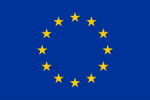The CHARM project aims to develop Electronics Components and Systems technologies that tolerate harsh industrial environments. The project concept centers around real industrial challenges from different types of end use industries.


Background
Digitalization has been identified as one of the most powerful enablers of renewal and competitiveness of European manufacturing industries.
However, grasping the digitalization and IoT related opportunities can be limited by the harsh environmental conditions of the manufacturing process and/or end use environment – there’s no IoT without functioning electronics components and systems. Particularly, together with the requirement for small form factors, the simultaneous combination of severe thermal, mechanical and chemical stress is difficult for components and systems intended for current IoT systems.
CHARM aims to contribute in solving this issue by developing Electronics, Components and Systems (ECS1) technologies with improved tolerance towards harsh industrial surroundings.
Goal
The CHARM ECSEL JU project aims to develop industrial IoT solutions with an improved tolerance towards
harsh industrial surroundings. Digitalisation of the European manufacturing industries is the key to their continuous renewal and competitiveness. Harsh environmental conditions in manufacturing processes and end user environment may slow down the opportunities brought by IoT (Internet of Things) and AI (Artificial
Intelligence). The CHARM project is set to solve this challenge.
Impact
All UCs are based on real industrial needs, and thus elated developments and innovations are directly tailored to meet the needs of European markets.
The harsh environments related challenges have similarities and the technological solutions have potential to serve several types of industries, also those new to traditional ECS ecosystem. Thus, introducing the new technology capabilities and delivering them to market meet the needs of global markets as well.
Reinforcing the Use Case owners by ew competitiveness, business and growth and later also other manufacturing industries with similar needs. Providing the ECS technology enables companies with improved technological capabilities, competitiveness and growth opportunities by serving new value chains. RTOs’ and universities’ collaborations with new industrial partners and increased understanding of their needs enables R&D&I collaborations fostering new industrial sectors.
Funding source
European Union H2020-ECSEL and Business Finland
This project has received funding from the ECSEL Joint Undertaking (JU) under grant agreement No 876362. The JU receives support from the European Union’s Horizon 2020 research and innovation programme and Finland, Austria, Belgium, Czechia, Germany, Italy, Latvia, Netherlands, Poland, Switzerland.
Coordinating organisation
Valmet Technologies Oy (Valmet), Finland
Partners
Valmet (Finland), Sandvik (Finland), Lapin AMK -Lapland Applied Science – LUAS (Finland), BENEQ (Finland), NOME (Finland), SSH (Finland), Aixacct (Germany), Applied Materials (Italy), AT&S (Austria), Besi (Austria), Canon (Netherlands), IUNET (Italy), CSEM (Switzerland), TUDelft (Netherlands), E+E (Austria), Fraunhofer (Germany), IMEC (Netherlands), InnoSent (Germany), LGE (Italy), IMiF (Poland), MCL (Austria), PacTech (Germany), QPLOX (Belgium), Quantavis (Italy), REDEN (Netherlands), RIGA University (Latvia), SAF (Latvia), SmartMotion (Czechia), Sylvac (Switzerland), Technische University Chemnitz (Germany), TORNOS (Switzerland), TIPb (Netherlands), UJV Rez (Czech Republic), University of West Bohemia UJV Rez (Czech Republic), Wurth Elektronik (Germany).
Contact persons

FAST-Lab.
FAST-Lab. does research in Automation, Industrial Informatics, Industrial Cyberphysical Systems, Robotics and Artificial Intelligence.

